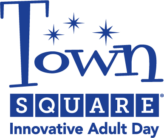7 Early Signs a Loved One Needs Support
As loved ones get older, they might struggle to perform everyday tasks. Activities like cooking meals, paying bills, and running errands become difficult, if not impossible.
And for some individuals, aging in place without help can be unsafe. At that point, older adults require personal care services to ensure their well-being.
But knowing when someone needs personal care isn’t easy. Aging is a gradual process, and unless you know what to look for, you might not realize your family member’s quality of life has diminished or that their safety is at risk.
1. Memory Problems or Wandering
If your loved one starts having trouble with their memory — for example, they might forget appointments, basic knowledge about themselves or your family, or even how to cook a healthy meal — they probably need some type of daily help.
An older adult experiencing cognitive issues might also leave the house and wander around the neighborhood. The problem with this is that they can wander too far and not know how to return home.
2. Accidents or Unsteady Mobility
It’s estimated that 36 million older adults fall each year, 3 million of which require emergency room treatment. If your loved one is having trouble walking up and down the stairs or is falling due to poor balance, you’ll want to find out how extensive their mobility issues are, talk to a doctor about recommendations, and consider helping them receive professional assistance.
3. Ignored Daily Tasks
Whether it’s due to mood changes or memory loss, sometimes older adults start neglecting daily tasks. You might visit your parents or another older family member and notice they haven’t changed their clothes or prepared meals for themselves in days. The house might be a mess, or they might have stopped mowing the lawn.
4. Changes in Personality
When someone starts to develop Alzheimer’s disease or related dementias, they might begin acting differently. For example, they may seem far more irritable than normal or appear anxious over things that wouldn’t worry them in the past.
5. Improper Nutrition
If your loved one is losing weight or isn’t keeping up with their typical eating habits, there could be a problem with their memory or other age-related issues. For a variety of reasons, many seniors might not hydrate adequately, which can put them at risk for medical issues including urinary tract infections as well as other systemic problems.
6. Depression and Isolation
Sometimes older adults will begin to draw inward when they start experiencing memory decline. They might stop engaging in social activities and lose interest in the things that used to bring them joy.
7. Inability to Drive Safely
Everything from stiff muscles and joints to trouble hearing and seeing can impact driving safety. Many older adults think they’re still decent drivers, but if they are getting into accidents or near misses or are having trouble remembering directions, they might not be able to drive safely anymore.
What Can You Do if a Family Member Can’t Take Care of Themselves?

When a loved one starts exhibiting these early warning signs, they may still be able to live at home, at least for a while. However, they probably need some type of assistance.
To help your aging family member, here’s what you can do:
- Talk to your loved one about possible solutions to their unique challenges. For example, if they’re starting to forget things around the house or neglect their health, they might need part-time help.
- Research personal care options with them. There are a variety of options available today, from adult day care services to hiring someone to help with light housekeeping and meal preparation. At Town Square, we partner with Senior Helpers, one of the most trusted nationwide names in senior home care. Our company was founded by dementia care experts from Senior Helpers, and thanks to this partnership, we’re able to offer a full spectrum of assistance to senior citizens with dementia and their loved ones.
- Discuss the level of care they need based on their situation. This step might involve talking to their doctor or another medical provider to determine what your loved one needs to stay healthy and safe.
- Contact service providers and ensure your choice is a good fit. If your senior loved one needs regular assistance, a licensed care agency like Senior Helpers in your area can readily provide compassionate support. Whether you’re working with a professional caregiver who works with an agency or a residential facility, take the time to ask questions, meet the providers in person, and determine if they are a good fit for your loved one.
How Does Town Square Help Seniors Who Need Assistance and Support?
Town Square at the Jersey Shore offers the most engaging social day care for older adults, and we cater particularly to people with dementia or other memory disorders starting from the earliest stages. Our team, composed of experienced staff with specialized dementia training, can offer compassionate care while also providing a stimulating, comfortable environment where individuals can socialize, engage in activities, and have fun.
We also offer convenient services such as transportation to and from our center and coordination of care with outside medical providers. You can schedule a tour today or contact us to learn more about how our adult day services improve quality of life for all of our members.


